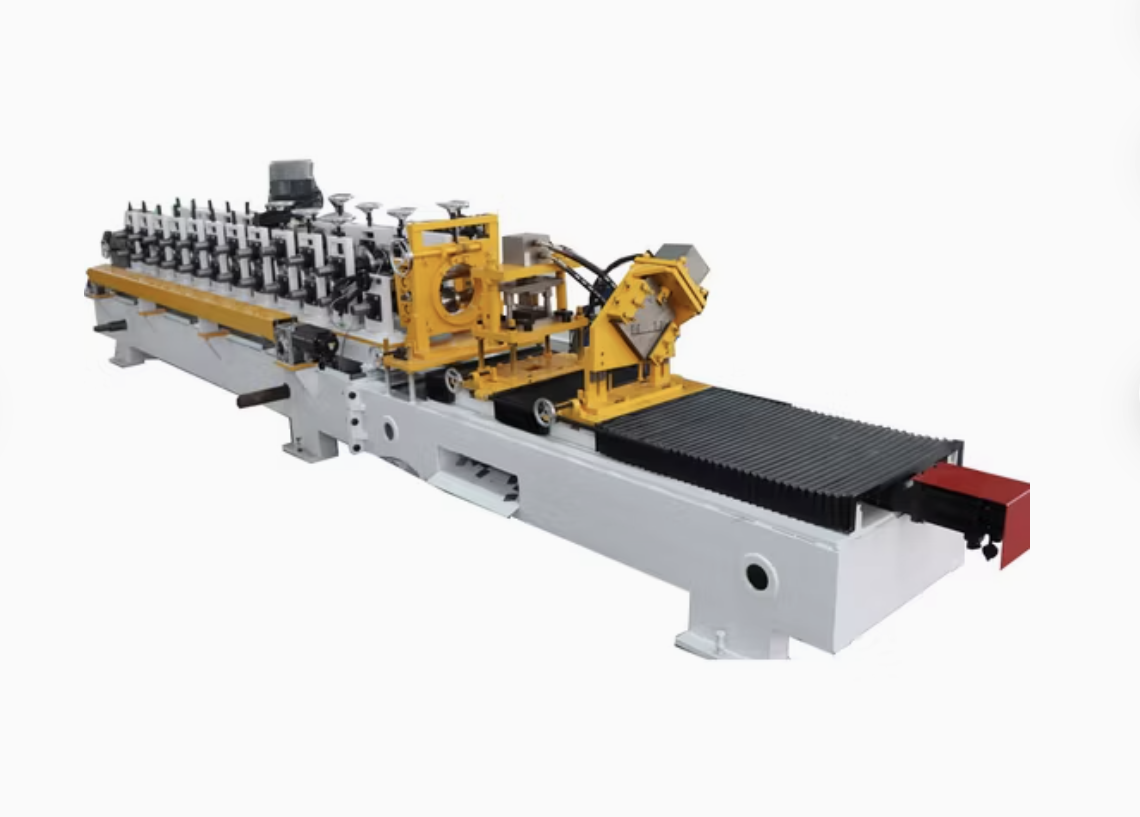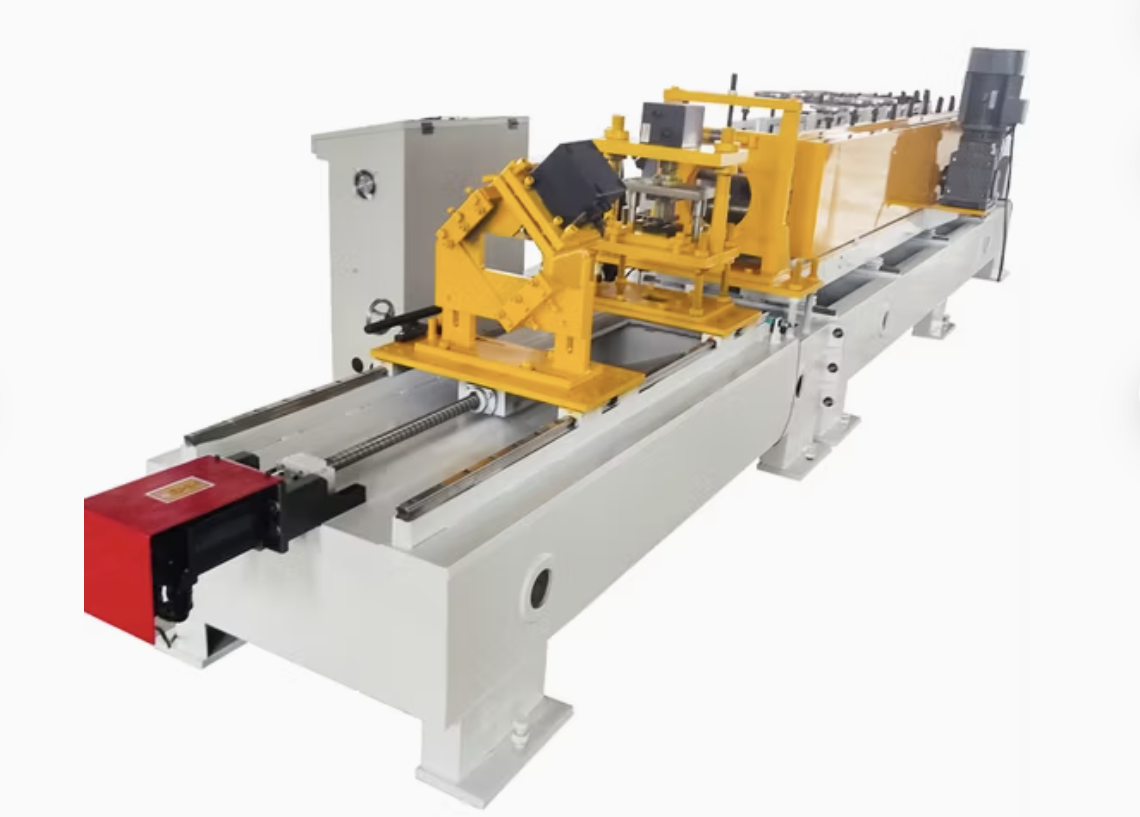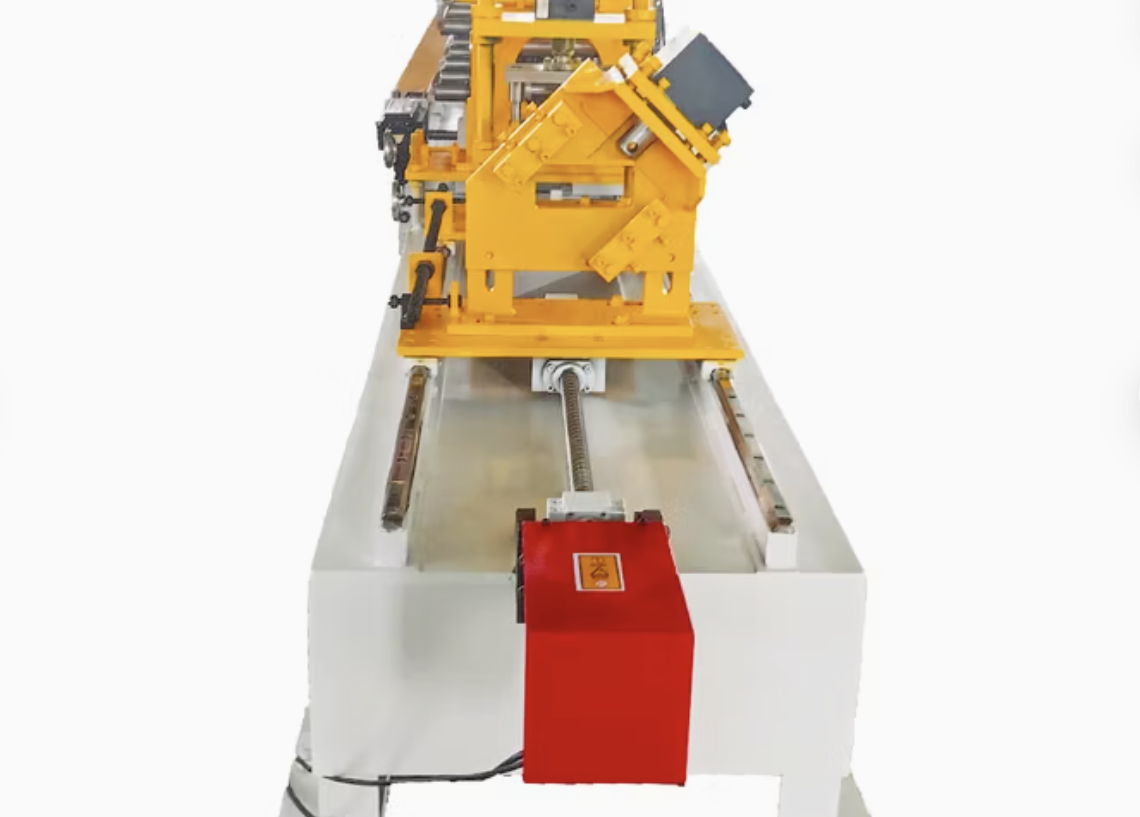To express an interest in this machine please submit the form below.

Not Sure What Machine You Need?
Select Your Profile, We'll Match It
Choose your desired profile drawing, and let Machine Matcher connect you with the best roll forming machine tailored to your needs.
Browse Profiles



Description
A metal stud roll forming machine is designed to produce metal studs, which are essential components in constructing drywall partitions and lightweight steel frames. This machine can transform metal coils into precise metal stud profiles, offering quick production with high accuracy. With the capability to form various sizes of studs with minimal adjustments, it caters to the growing demand for cost-effective and durable building materials. Metal studs produced by these machines are commonly used in both residential and commercial construction, providing excellent load-bearing capacity and resistance to fire and pests.
Machine Specifications
Q1: What materials can be used in a metal stud roll forming machine?
A1: Metal stud roll forming machines primarily work with cold-rolled steel and galvanized steel, which provide strength and corrosion resistance. Some machines can also process stainless steel or aluminum, depending on the thickness and specific machine capabilities.
Q2: How does a metal stud roll forming machine differ from other roll forming machines?
A2: A metal stud roll forming machine is specifically designed to create metal stud profiles used in framing applications. Unlike general roll forming machines, it includes customizable width and thickness options and may feature punching stations for wiring and plumbing holes.
Q3: Can the machine produce multiple sizes of metal studs?
A3: Yes, most metal stud roll forming machines can adjust to produce various stud sizes by altering the roller configuration. Common sizes include 40mm, 50mm, 70mm, and 100mm widths.
Q4: What is the typical production speed of a metal stud roll forming machine?
A4: Production speeds range from 20 to 50 meters per minute, though this varies based on the machine model, material thickness, and profile complexity.
Q5: Is it possible to operate the machine remotely?
A5: Many advanced models come equipped with remote PLC systems, allowing operators to control and monitor the machine from a distance, making it easier to operate in high-volume production settings.
Q6: How often does the machine require maintenance?
A6: Regular maintenance is essential. Daily cleaning, weekly lubrication, and monthly inspections are recommended to ensure optimal performance. The cutting blades should also be sharpened or replaced periodically.
Q7: What industries benefit most from metal stud roll forming machines?
A7: Metal stud roll forming machines are vital for the construction industry, particularly in the framing and drywall sector. They are widely used in commercial and residential building projects due to the efficiency and strength of metal studs.
Q8: Can additional features like punching or stacking be added?
A8: Yes, most machines offer optional features, such as punching stations for holes in studs, stacking systems for automatic material organization, and coil handling systems for easier material loading and unloading.
A metal stud roll forming machine is an invaluable asset for construction-related manufacturing, enabling high-speed, precise production of metal studs essential for modern building frameworks.
Copyright 2026 © Machine Matcher.